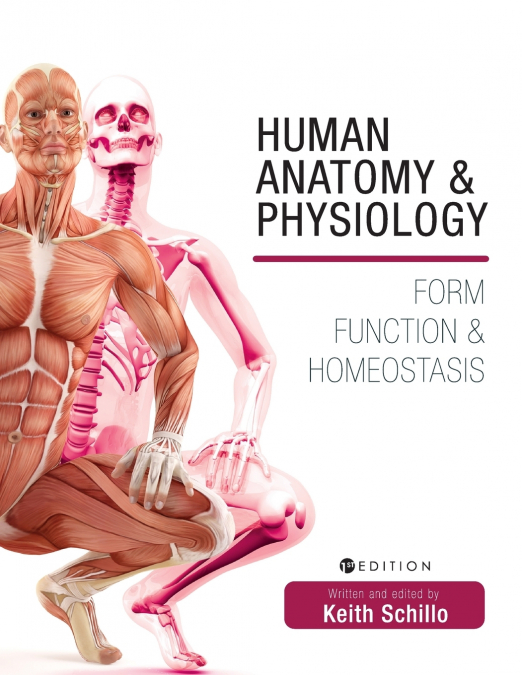
Keith Schillo
Human Anatomy and Physiology: Form, Function, and Homeostasis helps students understand the human body in terms of the structures and functions of various body systems. Clear and concise, the selected material provides descriptions of how major organ systems, individual organs, tissues, and cells interact to maintain homeostasis. The text establishes a conceptual framework for studying anatomy and physiology at the molecular, cellular, and systematic levels. The major chapters of the text include the integumentary, skeletal, muscular, nervous, endocrine, cardiovascular, respiratory, digestive, urinary, and reproductive systems. Chapters that focus on physiology begin with case studies that highlight major concepts and progress to discussions of the major processes that regulate homeostasis. All chapters include a list of learning outcomes that are aligned with a collection of study questions. Many standard texts provide more information than can be covered, even in a standard, two-course progression. Human Anatomy and Physiology streamlines information and focuses on the most important aspects of human form and function in a no-frills, non-intimidating manner. The book is specifically designed for standard two-course sequences in anatomy and physiology, and is best suited to students who have completed a semester of biology.Keith Schillo is professor of biology at the State University of New York, Oneonta. He earned his Ph.D. in endocrinology and reproductive physiology at the University of Wisconsin, and has taught human and animal anatomy and physiology for over 30 years. His writing has appeared in Endocrinology, Biology of Reproduction, Journal of Reproduction and Fertility, the Journal of Animal Science, and Domestic Animal Endocrinology, and he is the author of Reproductive Physiology of Mammals: From Farm to Field and Beyond, from Delmar Cengage Learning.